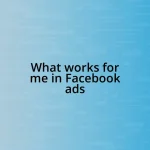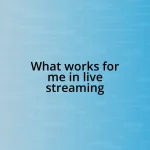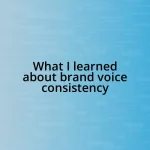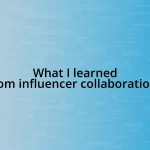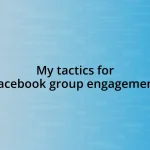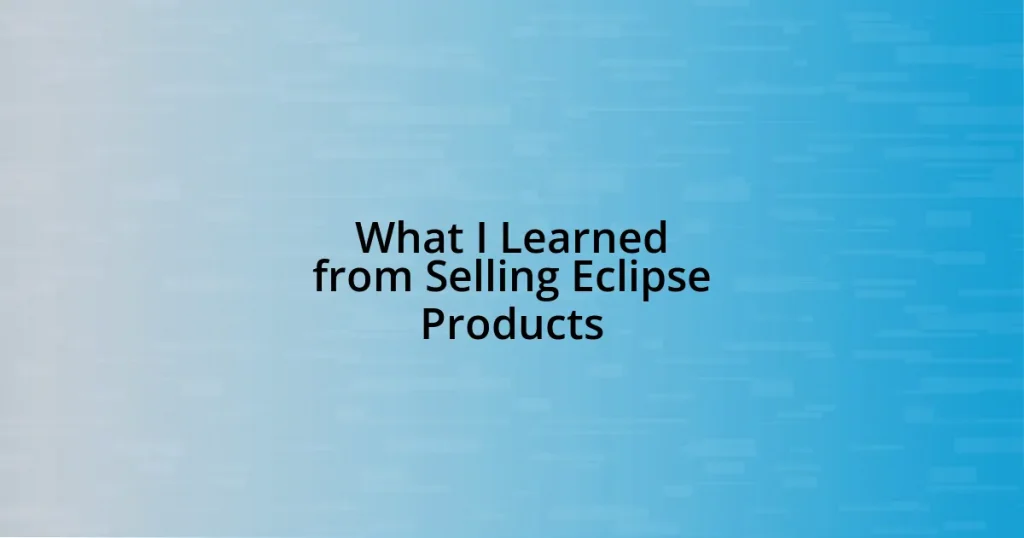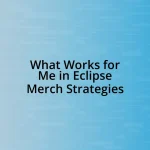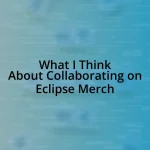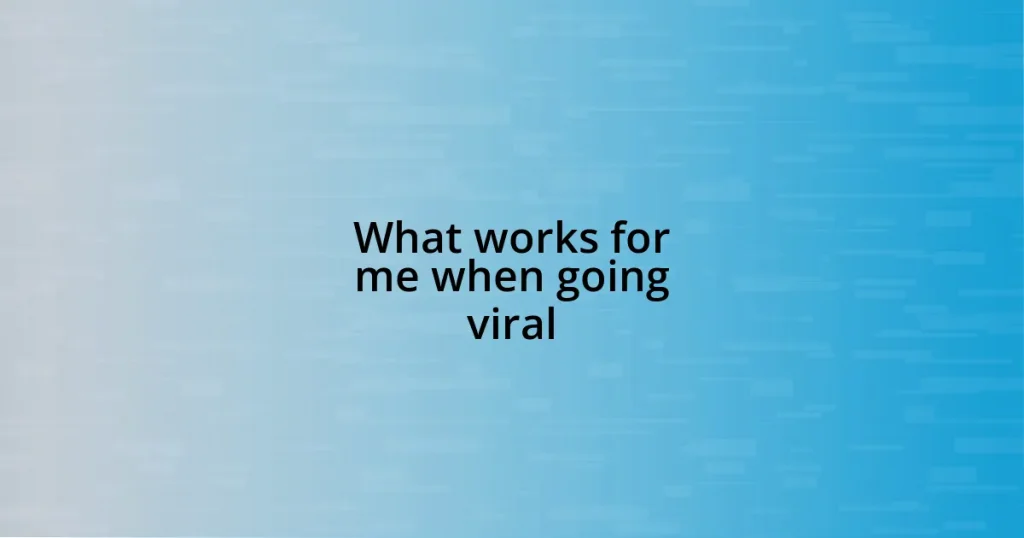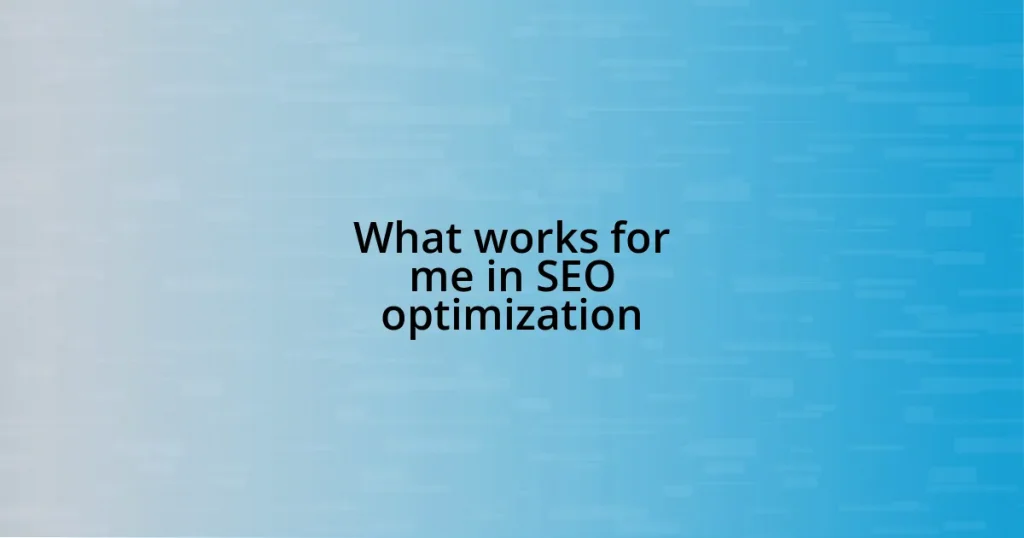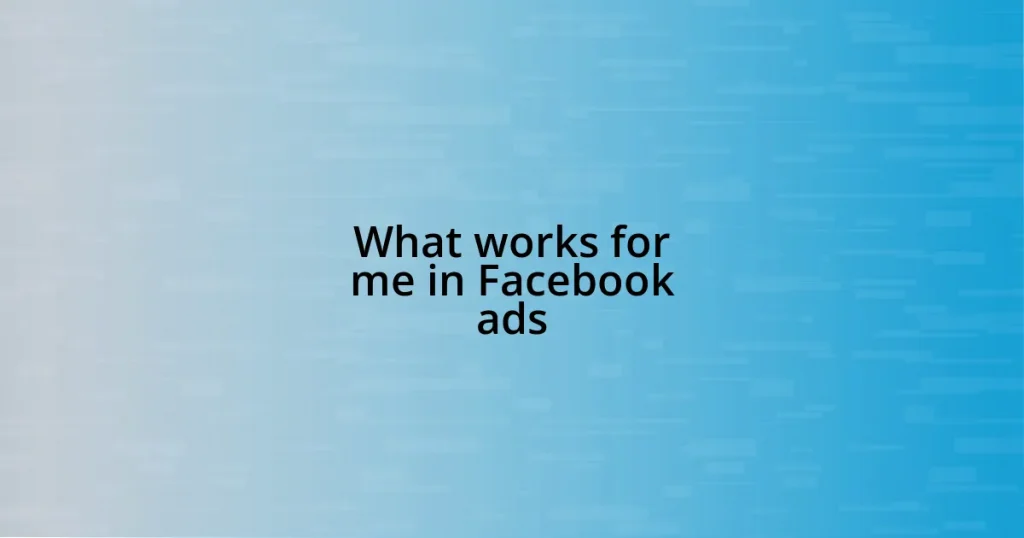Key takeaways:
- Eclipse products foster community and shared experiences among astronomy enthusiasts, enhancing the enjoyment of solar events.
- Building customer relationships through personal interactions and genuine conversations leads to loyalty and repeat business.
- Creative solutions and adaptability in addressing customer concerns can turn challenges into opportunities for deeper connections.
- Listening to customer feedback and being patient in the sales process can improve relationships and nurture trust.
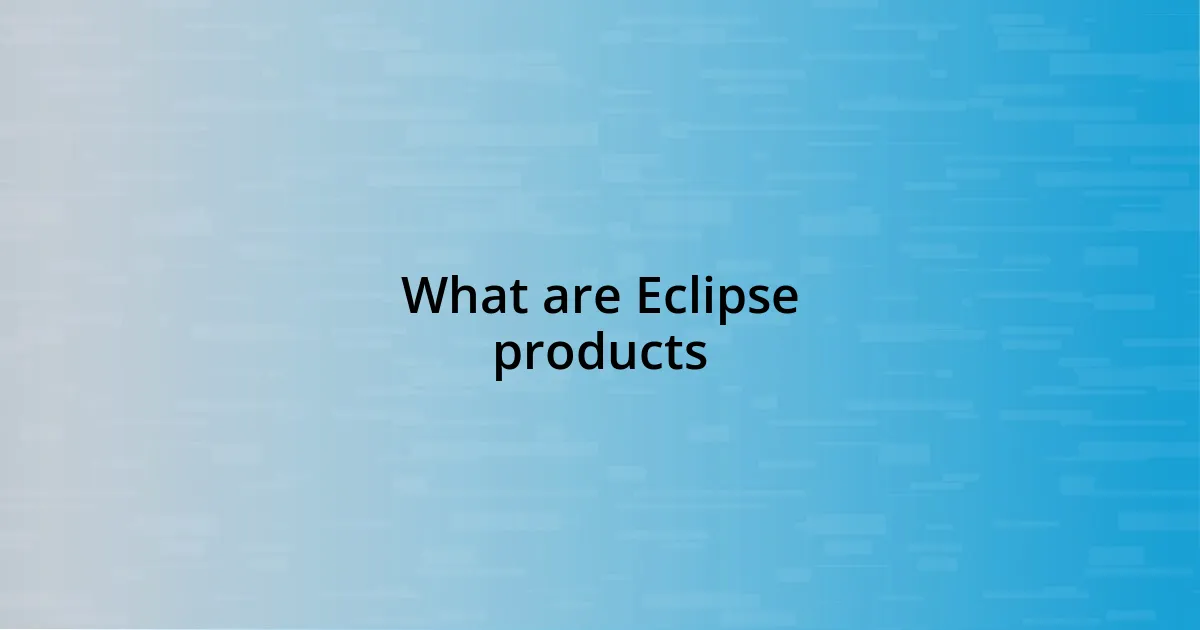
What are Eclipse products
Eclipse products are specifically designed to harness the power of solar eclipses, offering a variety of items such as solar viewing glasses, filters, and educational materials. I remember the first time I held a pair of eclipse glasses in my hands – the anticipation of watching the sun transform during that rare celestial event filled me with childlike wonder.
These products not only serve a practical purpose but also ignite a sense of community among eclipse enthusiasts. Have you ever experienced the thrill of sharing that moment with fellow sky-watchers? I recall a gathering where everyone wore their eclipse glasses, laughing and exchanging stories about previous eclipses, which created an electric atmosphere that transcended mere product usage.
Moreover, Eclipse products can educate us about astronomy while also emphasizing safety. I often find myself reflecting on the importance of protecting our eyes; it’s fascinating how these simple products facilitate both enjoyment and learning during such a magnificent phenomenon.
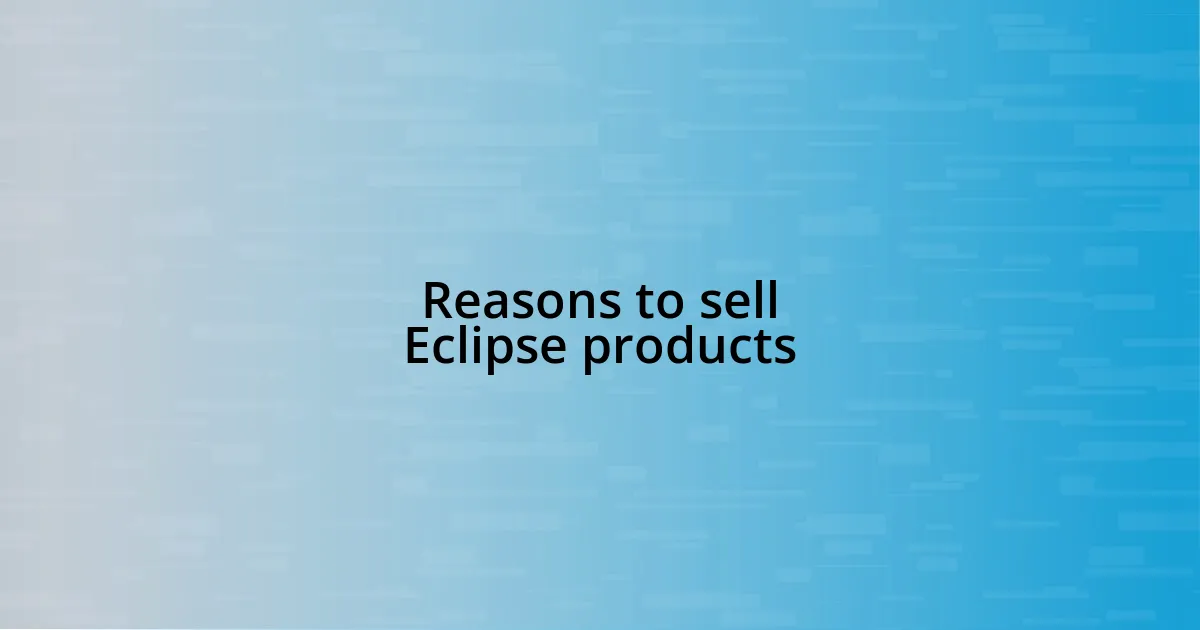
Reasons to sell Eclipse products
When I first ventured into selling Eclipse products, I quickly realized the potential for connecting with a passionate audience. The excitement that surrounds a solar eclipse can be contagious, and I found it incredible to see how these products serve not just as merchandise, but as tools for shared experiences. The thrill of being able to offer someone a pair of viewing glasses and knowing it might lead to their unforgettable memory was immensely rewarding.
Here are some compelling reasons to consider selling Eclipse products:
- Growth in Interest: Each solar eclipse sparks renewed interest in astronomy, making these products a timely offering.
- High Demand: People often seek quality viewing items, creating a market where selling Eclipse products can be lucrative.
- Community Engagement: Selling these products brings you closer to fellow enthusiasts, forming bonds and networks based on shared interests.
- Educational Value: Eclipse products provide an opportunity to educate customers about astronomy and the science behind solar events, enriching their experience.
- Recurring Events: With multiple eclipses occurring every few years, there’s the potential for repeat business and ongoing customer relationships.
Reflecting on my journey, it’s inspiring to witness the joy on customers’ faces when they realize they’re prepared for an awe-inspiring moment. Each sale is not just a transaction; it’s a chance to bring people together for something truly extraordinary.
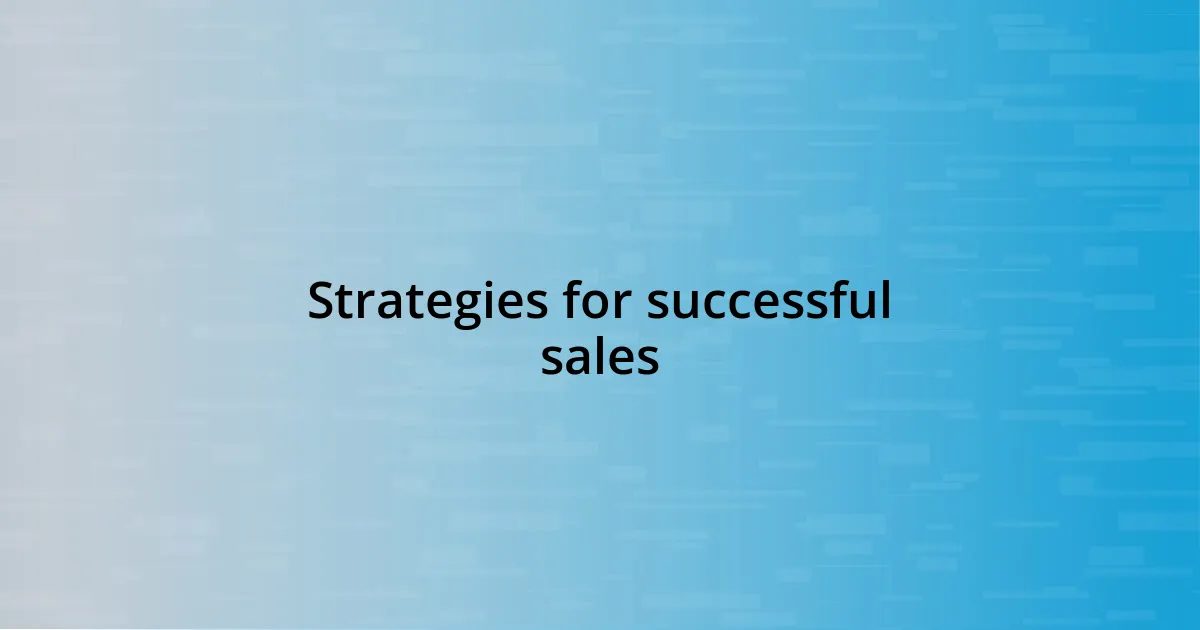
Strategies for successful sales
Selling eclipse products requires a thoughtful approach to connect with customers’ excitement and curiosity. One effective strategy that I found valuable is sharing personal stories about how eclipses impacted my life. For instance, I vividly recall the awe I felt during my first total solar eclipse—it completely changed my perspective on the universe. When I share this experience with potential buyers, it creates a relatable bond. Customers are not just purchasing products; they are becoming part of a narrative that celebrates wonder and discovery.
Another key strategy involves creating a sense of urgency. When I highlight the limited-time nature of solar eclipses and the products associated with them, I notice customers are often more inclined to make a purchase. I remember running a special promotion leading up to an eclipse, where I emphasized that supplies were limited. The thrill of knowing that a unique event was right around the corner motivated buyers to act quickly rather than miss out on their chance to participate in this celestial phenomenon.
Lastly, leveraging social media can take sales to the next level. Engaging with the community through images, posts, and live discussions about upcoming eclipses created excitement around my products. I experienced firsthand how a simple post featuring customers wearing their eclipse glasses can inspire others to join in, transforming a one-time transaction into a community experience. This reflects my belief that successful sales aren’t just about the products; they’re about the connections we build around them.
| Sales Strategy | Description |
|---|---|
| Personal Stories | Sharing my eclipse experiences creates relatable connections with customers. |
| Creating Urgency | Highlighting the limited-time nature of eclipses encourages customers to act quickly. |
| Leveraging Social Media | Engaging with the community online fosters excitement and builds connections around the products. |
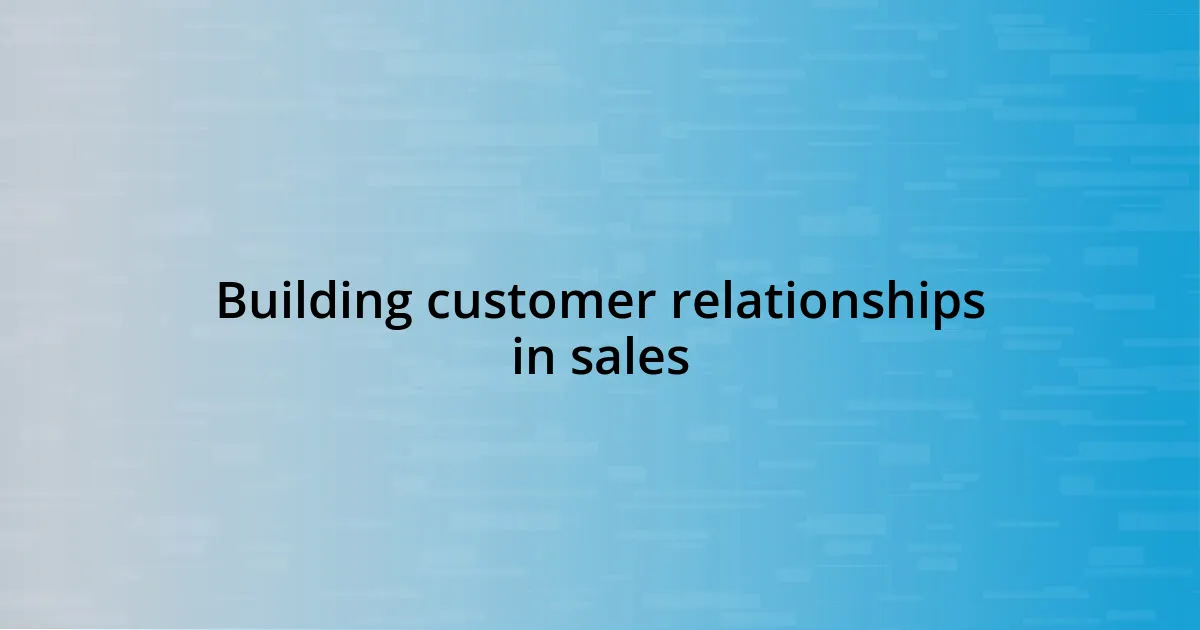
Building customer relationships in sales
Building customer relationships in sales is more than just a transaction; it’s about establishing connections that resonate. I remember assisting a family who were nervous about viewing their first eclipse. By taking the time to talk with them about their anticipation and sharing tips on how to enjoy the experience safely, I witnessed their initial apprehension transform into excitement. This interaction not only made them loyal customers but also turned them into advocates who shared their experience with others.
Trust is essential in sales, and I found that genuine conversations foster that trust effectively. When a customer approached me with questions about the science behind the eclipse, I was more than happy to explain it, weaving in my own fascination with astronomy. Wouldn’t you feel more at ease purchasing from someone who genuinely cares? After that conversation, not only did they buy several pairs of glasses, but they also returned for follow-up products, knowing they could count on my knowledge and support.
Listening to customers is a skill that pays off immensely. One day, while discussing product features, a customer mentioned wanting a memory-making experience with her children. We brainstormed ways to celebrate the event, which led me to suggest creating a family viewing kit that included educational materials. Seeing her eyes light up at the idea reminded me that the products we sell can facilitate deeper connections, turning moments into lasting memories. It’s these shared experiences that have kept customers coming back for more, further deepening our relationship.
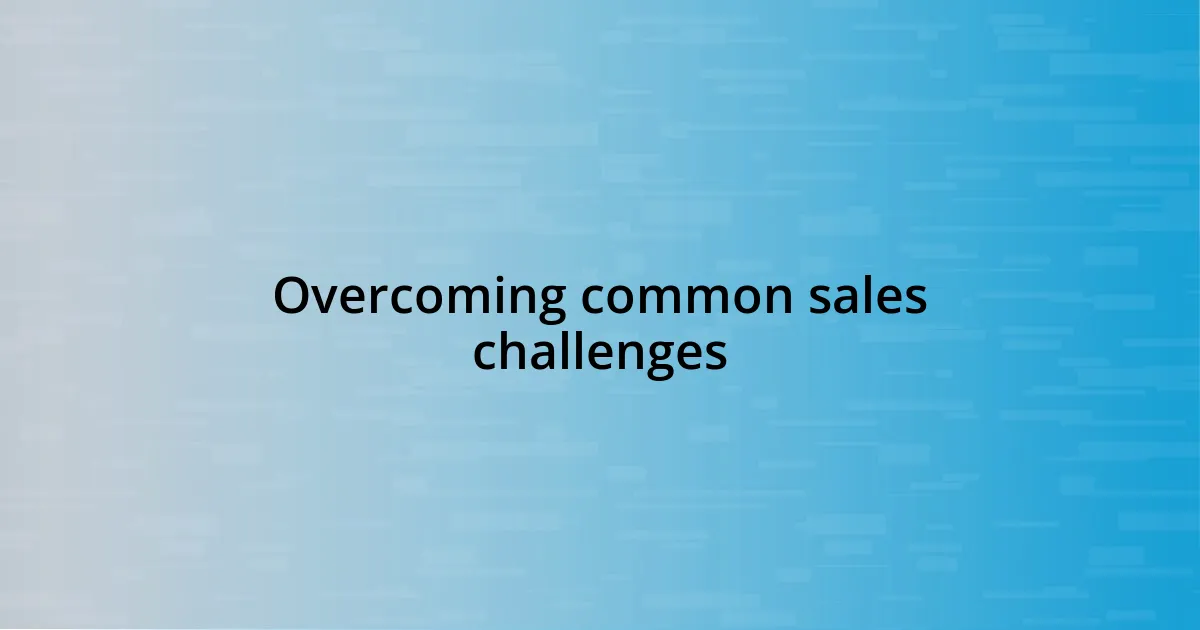
Overcoming common sales challenges
Facing common sales challenges can feel daunting, but I’ve discovered a variety of tactics that help me navigate these obstacles. For example, I once encountered a skeptical customer who believed eclipse glasses were just a gimmick. Rather than dismissing their concerns, I took a moment to share the story of how a pair of glasses helped me safely view a spectacular event. This personal touch not only eased their doubts but also transformed the conversation into a meaningful exchange.
Pricing objections often arise, especially when customers are uncertain about the value of what they’re purchasing. I’ve found that showcasing how these products enhance the overall eclipse experience can make a significant difference. I recall a moment when a parent hesitated due to the cost of a viewing kit. By illustrating how much joy and learning could come from watching their child’s eyes light up during an eclipse, it reframed the purchase into an investment in a cherished family memory.
Sometimes, the challenge isn’t just about convincing customers; it’s about standing out in a crowded market. I remember launching a new line of eco-friendly eclipse glasses and panicking at the thought of competing against well-known brands. Instead of shrinking back, I organized a local event that encouraged families to come together for solar viewing. Engaging the community allowed me to showcase the unique attributes of my product while creating an experience that resonated with attendees. It reminded me that overcoming sales hurdles often requires creativity and a connection to the audience.
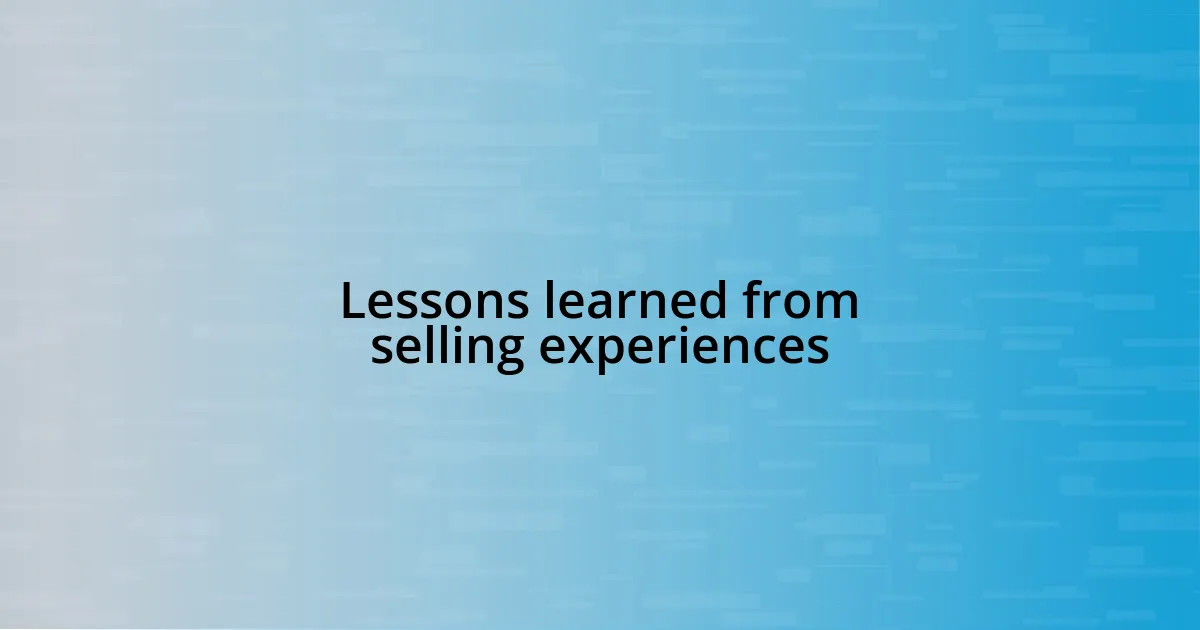
Lessons learned from selling experiences
One of the most important lessons I’ve learned is that resilience is key in sales. There were times when I had unsatisfied customers, and it genuinely stung. However, instead of letting it dampen my spirit, I approached them with open ears and a willingness to improve. When one customer expressed disappointment about a delayed shipment, I not only apologized but also offered a heartfelt personal touch by sending a handwritten note along with a small discount on their next purchase. This not only softened the blow but also built a rapport that turned a negative experience into a loyal customer relationship. Isn’t it fascinating how turning an upset client into a satisfied one can boost your own morale, too?
Adapting my approach based on customer feedback has been a game-changer. For instance, I remember a particularly insightful conversation with a group of educators who shared that they wanted more educational content with their eclipse products. Inspired, I collaborated with local schools to create informative pamphlets. This adaptation didn’t just enhance our product line; it deepened my understanding of what customers truly value. Have you ever noticed how listening can turn an average sale into something much more meaningful? It’s a reminder that sales aren’t just about products; they’re about providing value to people.
Finally, I’ve realized that patience plays a crucial role in the selling process. Early on, I was eager to push for sales. However, I learned that sometimes, giving customers space to think leads to better outcomes. On one occasion, I had a conversation with a hesitant buyer during a bustling event. Instead of rushing them, I shared my own experience, explaining how I, too, had taken my time to decide on purchasing my first eclipse glasses. After a few minutes of casual chat, they came back and made a purchase, citing that the relaxed atmosphere helped them feel more confident. This moment taught me that fostering patience in sales creates room for better decision-making, don’t you think?


